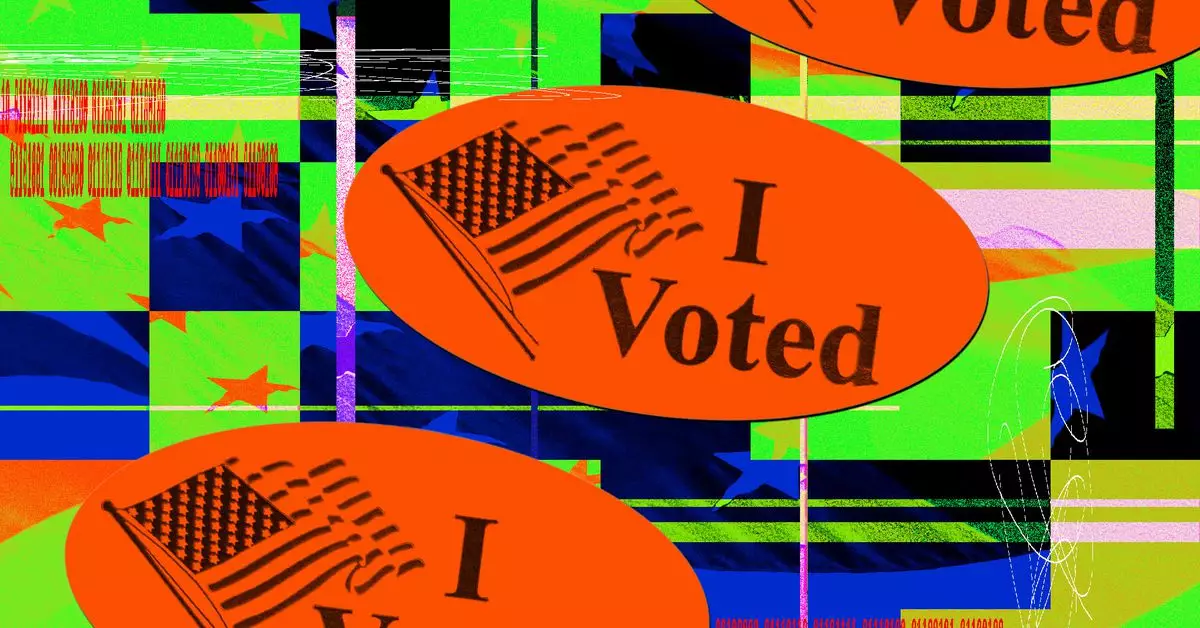In an alarming move reflecting the escalating concerns regarding election integrity, the United States government has imposed sanctions on various organizations in Russia and Iran. These entities were found to be engaged in covert operations aimed at influencing the upcoming 2024 presidential election. The Treasury Department’s unveiling of these sanctions underscores a commitment to safeguarding democratic processes from foreign interference that aims to sow discord among American voters.
Central to the investigation is the Moscow-based Center for Geopolitical Expertise, an organization with deep ties to Russia’s Main Intelligence Directorate (GRU). This group has taken disturbing strides by developing an AI-driven server dedicated to generating misleading narratives. By sidestepping foreign web-hosting services—presumably to evade detection—this organization has successfully disseminated a barrage of disinformation across a network of over 100 deceptive websites. Such sophisticated tactics not only amplify the volume of false information but also strategically target vulnerable segments of the American populace, creating an environment ripe for disruption.
What intensifies this issue is the implication of U.S. companies financially enabling these malicious operations. Reports indicate that some American businesses unwittingly received funds to support the maintenance of the Russian organization’s server, thereby inadvertently contributing to the spread of disinformation. This revelation raises critical questions about the responsibility, accountability, and complicity of tech entities in the face of such threats.
Further exacerbating these tensions is the revelation that these organizations have sought to manipulate public opinion through video content. A notable incident involved the alteration of media to level unfounded allegations against Tim Walz, a vice presidential candidate. By engineering a smear campaign against a key political figure, these groups illustrate their willingness to directly attack the integrity of political discourse in the U.S. Such strategic maligning not only threatens individual candidates but also undermines public trust in the electoral process as a whole.
In addition to Russian interference, Iranian involvement adds another layer to the complex landscape of election meddling. The Cognitive Design Production Center, associated with Iran’s Islamic Revolutionary Guard Corps (IRGC), has been accused of orchestrating plans to disrupt the electoral process well ahead of the election. This global collaboration between hostile nations highlights a systematic effort to distort democratic engagement through cyber and media-based strategies.
The U.S. Department of Justice has responded through legal actions against various Iranian actors linked to cyberattacks targeting political campaigns, emphasizing the serious nature of these transnational efforts to manipulate democratic outcomes.
As articulated by Bradley Smith, the Acting Under Secretary of the Treasury for Terrorism and Financial Intelligence, the united front of Iran and Russia aims to undermine the U.S. electoral framework. The implications of foreign interference extend beyond merely influencing elections; they seek to create wider divisions within the American populace. Moving forward, vigilance remains paramount in fortifying electoral integrity against these sophisticated threats. Robust responses from governmental institutions, technological vigilance, and public awareness are essential to counter these disinformation campaigns before they can further erode public confidence in democracy.

